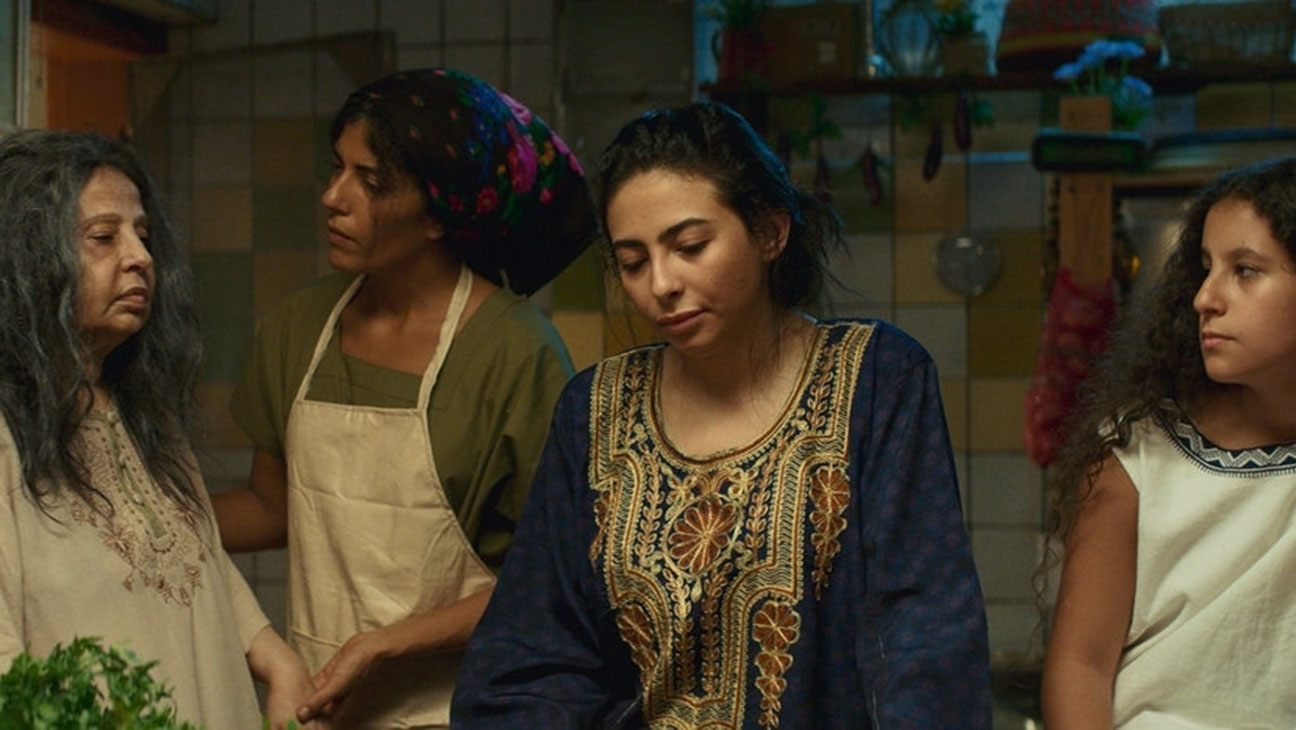'Amra and the Second Marriage': Film Review | London 2018
 Click Here for the Post https://www.hollywoodreporter.com/review/amra-second-marriage-film-review-london-2018-1161076
Click Here for the Post https://www.hollywoodreporter.com/review/amra-second-marriage-film-review-london-2018-1161076
The director of former Oscar hopeful ‘Barakah Meets Barakah’ probes the troubled sexual politics of Saudi society in this bittersweet family farce.
Saudi Arabia’s shaky progress toward a more liberal, open society suffered a serious blow last month with the brutal murder of dissident journalist Jamal Khashoggi. Even so, the kingdom’s cinema industry is already undergoing a quiet revolution, with new ruler Prince Mohammed bin Salman lifting a longtime ban on foreign films and opening the first new cinemas in 40 years. This past decade has also seen a trickle of promising home-grown features like Mahmoud Sabbagh’s Amra and the Second Marriage, government-approved productions that nevertheless use surreal humor and gentle satire to criticize oppressive religious and patriarchal power.
A young writer-director who studied film at Columbia University, Sabbagh earned wide acclaim for his 2016 debut feature Barakah Meets Barakah, which premiered at the Berlinale before landing theatrical distribution in several European and Middle Eastern markets. It later became Saudi Arabia’s second-ever official Oscar submission, and the first Saudi film to be bought by Netflix.
Amra and the Second Marriage has a similarly bright look and playful tone to Barakah Meets Barakah. But it also has a broader social sweep and sharper satirical edge, boldly squeezing irreverent humor from potentially contentious topics like the niqab veil, gender equality, religious hypocrisy, domestic violence, recreational drugs and sharia divorce law. Imagine The Handmaid’s Tale rebooted as a Coen brothers comedy.
This blend of universal comic spark and timely feminist subtext, coupled with the novelty factor of witnessing everyday life inside the hermit Saudi kingdom, should give Amra and the Second Marriage solid festival appeal and niche theatrical potential. World premiered at the London Film Festival last month, it next screens as part of the Arab competition strand in the rebooted Cairo film fest later this month.
This drama mostly unfolds in a modern family home in a well-heeled residential complex on the edge of the desert. Mid-forties Amra (Alshaima’a Tayeb) is struggling to raise two teenage daughters almost single-handedly, rebellious secret stoner Hamida (Um Kalthom Sara) and moody musical prodigy Jamila (Sara Alshamik), while also caring for her aging, mentally fragile mother Nafisah (Eisha Farhan).
Amra’s husband of 25 years, Hilal (Saleh Al Bashbishi), is a virtual stranger who treats her more like a domestic servant than soulmate. Indeed, she only learns through second-hand neighborhood gossip that he has made plans to marry a much younger second wife, Syrian beauty Ishtar (Waad Khayami), to secure the male heir that Amra has failed to provide.
Thrown into panic by her younger rival, whose arrival signals an imminent downgrade in her own social and financial standing, Amra resorts to desperate measures, prayers and curses in a bid to sabotage the impending wedding. She solicits fruitless advice on divorce from a smug young judge with three wives of his own, and consults a comically bogus imam who runs a shady side business selling holy water. His advice is hardly helpful: “Women are the firewood that makes Hell burn,” he cautions, “showing ingratitude to one’s husband is a mortal sin.”
A shell-shocked Amra is caught in a confusing cacophony of conflicting advice. While more progressive friends and women’s rights groups encourage her to throw off society’s patriarchal shackles, others brand her a “spiteful traitor” for refusing to bless the new marriage, and her monstrous mother-in-law Sa’adiya (Khairia Nazmi) threatens to expel her from the family home. Meanwhile, her handsome new neighbor Rashid (Turki Al Jallal), a recently widowed young father with a more westernized secular outlook, seems to offer Amra a possible escape route from stifling tradition.
Despite a rambling, episodic mid-section and a handful of underdeveloped characters, Amra and the Second Marriage is an engaging and richly detailed snapshot of modern middle-class Saudi society. While some jokes are clearly culturally specific, Sabbagh is careful to keep the satire as universal and relatable as possible, spicing up the marital melodrama with sporadic detours into comic horror as Amra harbors increasingly murderous revenge fantasies. Standing out in an Almodovar-sized ensemble of strong female characters, Tayeb fleshes out her slightly cartoonish heroine with subtly rendered flickers of wounded pride, fiery defiance and bitter resignation. There are dark currents beneath the surface levity here.
Amra and the Second Marriage is not a game-changing, taboo-smashing, feminist polemic. Its nuanced critique of social and religious conservatism is carefully calibrated and sweetened with humor, for reasons that are probably as much politically pragmatic as they are dramatically valid. But Sabbagh’s lively comedy of manners represents another welcome baby step in the Saudi movie industry’s current mini renaissance, which is good news both for local filmmakers and for fans of free-spirited, big-hearted, contemporary Arab cinema.
Venue: London Film Festival
Production company: Elhoush Productions
Cast: Alshaima’a Tayeb, Sara Alshamik, Um Kalthom Sara, Zizi Alhariri, Turki Al Jallal, Shaimaa El Fadul, Eisha Farhan, Mohammed Alhamdan, Khaira Nazmi, Waad Khayami, Saleh Al Bashbishi
Director: screenwriter: Mahmoud Sabbagh
Producers: Mahmoud Sabbagh, Anas Batahaf
Cinematographer: Victor Credi
Editor: Emad Maher
Music: Tamer Karawan
Sales company: MPM Premium
95 minutes













